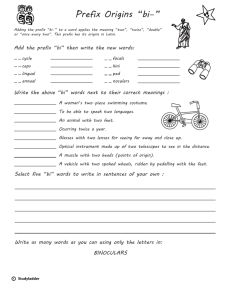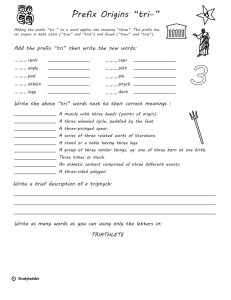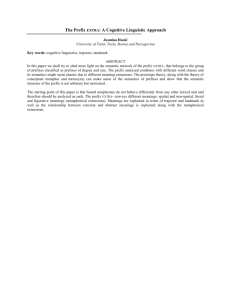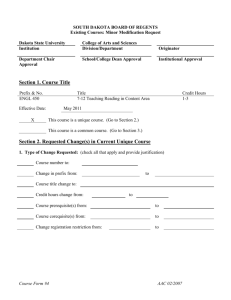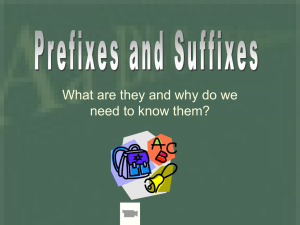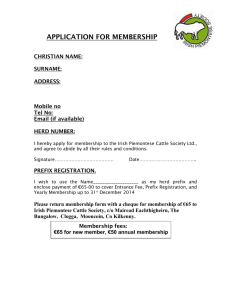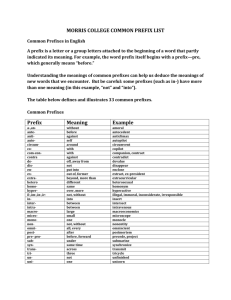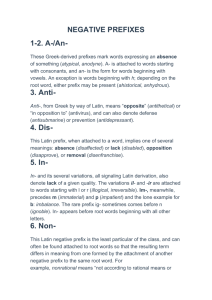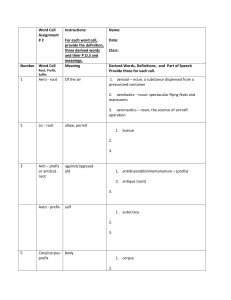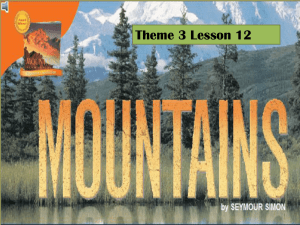Prefixes - Lakeshore Learning Materials
advertisement
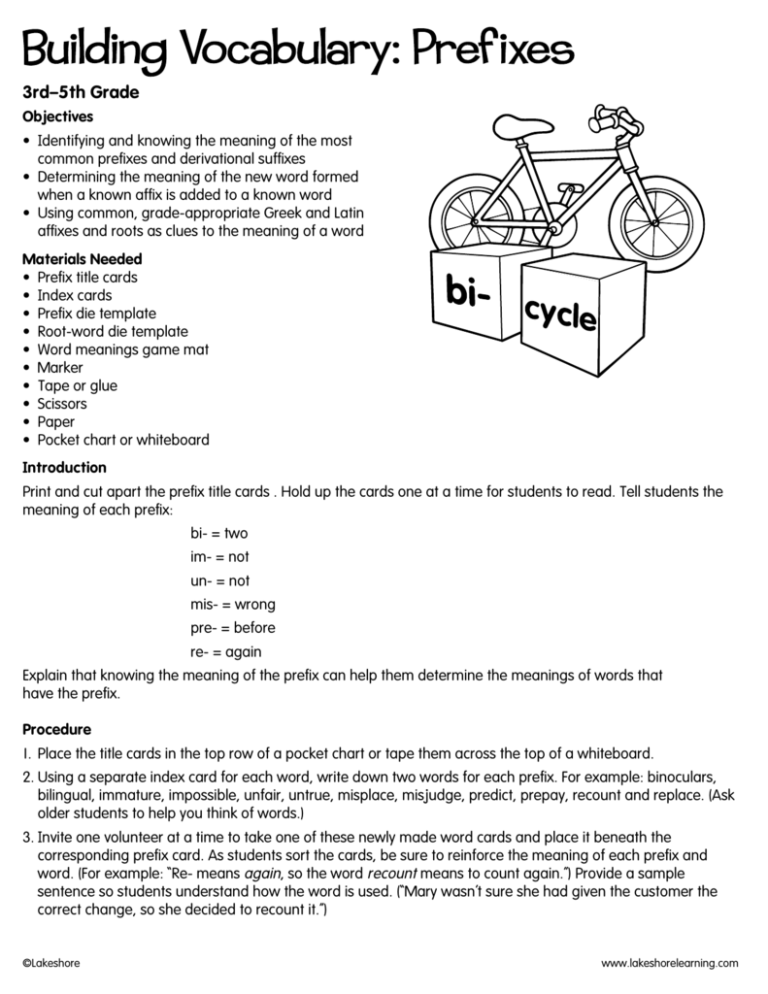
3rd–5th Grade Objectives • Identifying and knowing the meaning of the most common prefixes and derivational suffixes • Determining the meaning of the new word formed when a known affix is added to a known word • Using common, grade-appropriate Greek and Latin affixes and roots as clues to the meaning of a word Materials Needed • Prefix title cards • Index cards • Prefix die template • Root-word die template • Word meanings game mat • Marker • Tape or glue • Scissors • Paper • Pocket chart or whiteboard Introduction Print and cut apart the prefix title cards . Hold up the cards one at a time for students to read. Tell students the meaning of each prefix: bi- = two im- = not un- = not mis- = wrong pre- = before re- = again Explain that knowing the meaning of the prefix can help them determine the meanings of words that have the prefix. Procedure 1. Place the title cards in the top row of a pocket chart or tape them across the top of a whiteboard. 2. Using a separate index card for each word, write down two words for each prefix. For example: binoculars, bilingual, immature, impossible, unfair, untrue, misplace, misjudge, predict, prepay, recount and replace. (Ask older students to help you think of words.) 3. Invite one volunteer at a time to take one of these newly made word cards and place it beneath the corresponding prefix card. As students sort the cards, be sure to reinforce the meaning of each prefix and word. (For example: “Re- means again, so the word recount means to count again.”) Provide a sample sentence so students understand how the word is used. (“Mary wasn’t sure she had given the customer the correct change, so she decided to recount it.”) ©Lakeshore www.lakeshorelearning.com 4.Lead students in a guessing game using the words on the chart. Explain that you will think of a word and they can ask “yes” or “no” questions in order to discover the word. For example, a student might ask, “Does the word have a prefix that means before?” With each question, students will be able to eliminate options and demonstrate their knowledge of word meanings at the same time. Challenge students to try to guess the word in five attempts or less! 5.After playing the game a few times, invite a volunteer to choose a word and answer the other students’ questions. (Variation: Extend the activity by pairing students together and challenging them to play the game with their partners.) Independent Practice 1. Give each student a copy of the prefix die template and root-word die template. Have students cut out and assemble the dice using glue or tape. 2.Provide each student with a copy of the word meanings game mat and a sheet of paper. 3.Tell students to read each definition on the game mat. 4.Have students roll both dice at once. If they can use the prefix and root word they roll to build the word for one of the definitions on the mat, tell students to write down the word and its definition on the sheet of paper. 5.Challenge students to roll the dice until they have created all eight words for the definitions on their mats! 6.Have students check their work by comparing their answers to a partner’s answers. Answers: 1. two wheels: bicycle 2. to play again: replay 3. to heat before: preheat 4. not the same in value: unequal 5. not patient: impatient 6. to heat again: reheat 7. to put through a cycle again: recycle 8. to give wrong information: misinform ©Lakeshore www.lakeshorelearning.com unimre- premisbi- un- im- pre- mis- bi- re- Root-Word Die Template cycle inform heat equal patient play Name: ______________________________ 1. two wheels: _______________ 2. to play again: _______________ 3. to heat before: _______________ 4. not the same in value: _______________ 5. not patient: _______________ 6. to heat again: _______________ 7. to put through a cycle again: _______________ 8. to give wrong information: _______________
